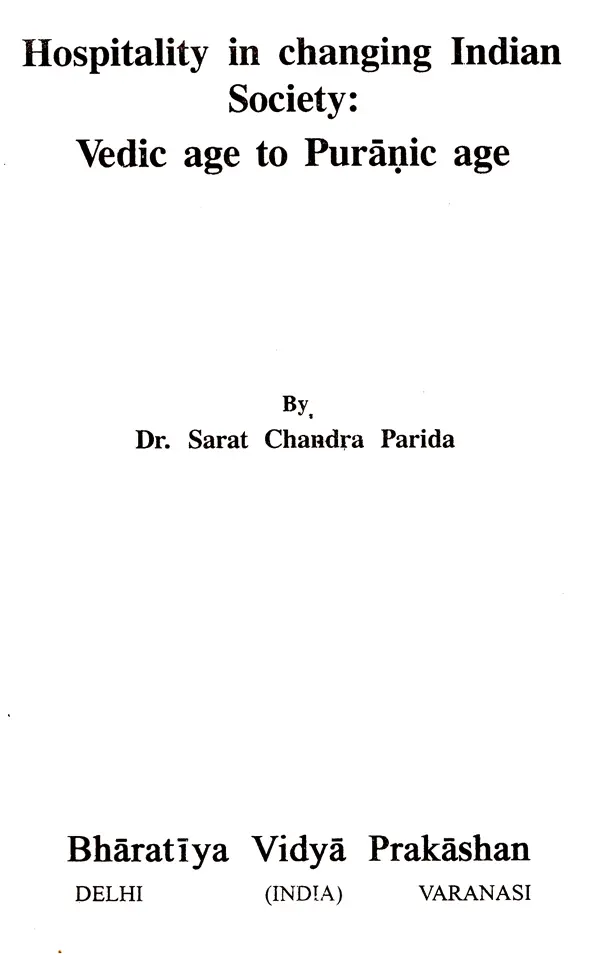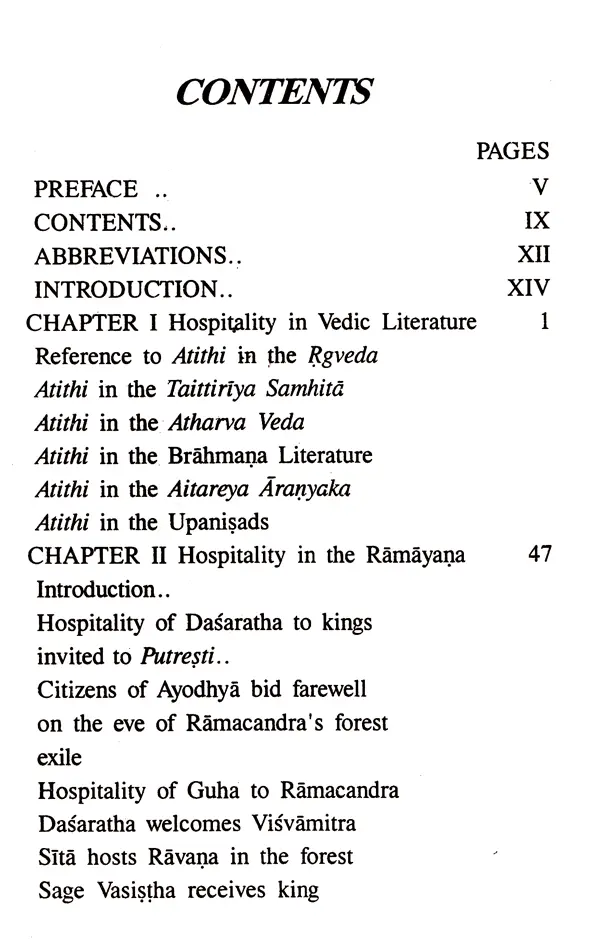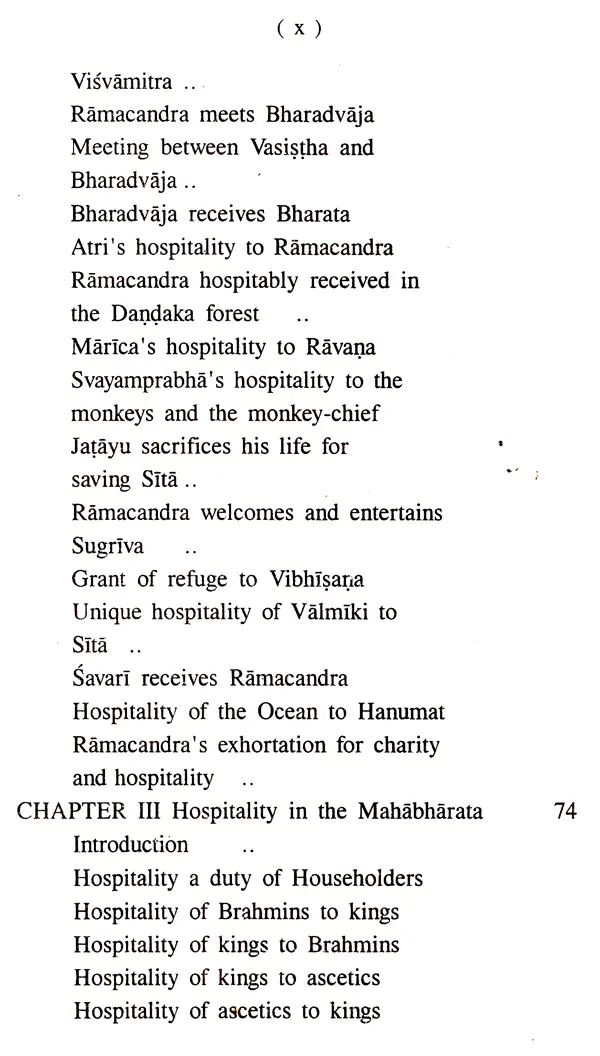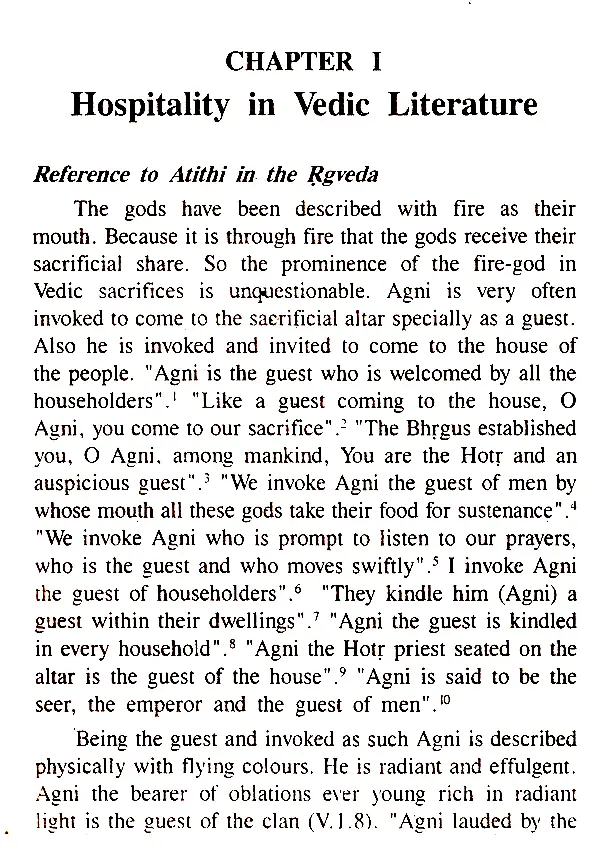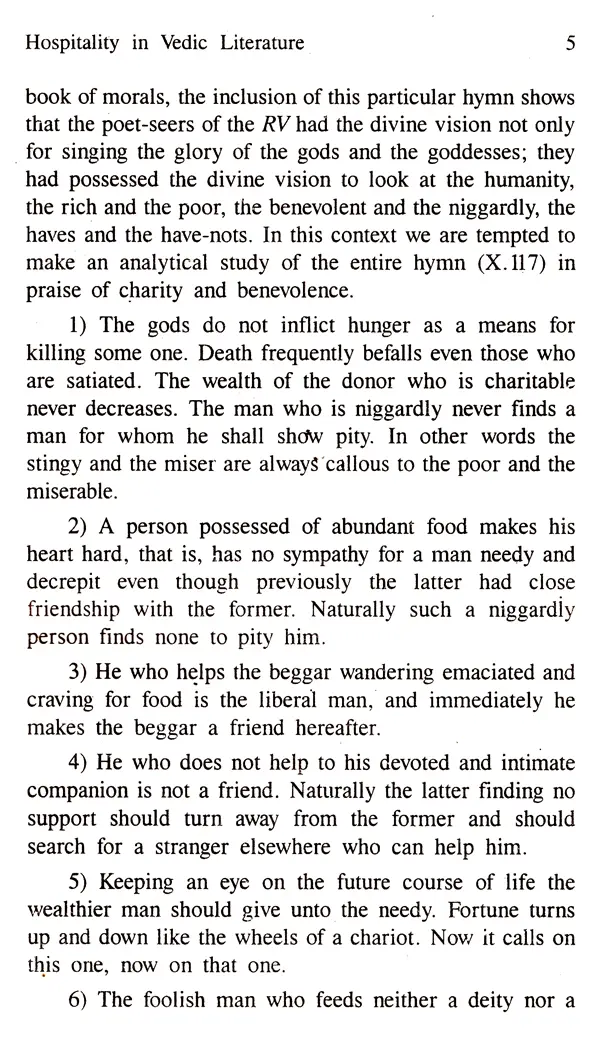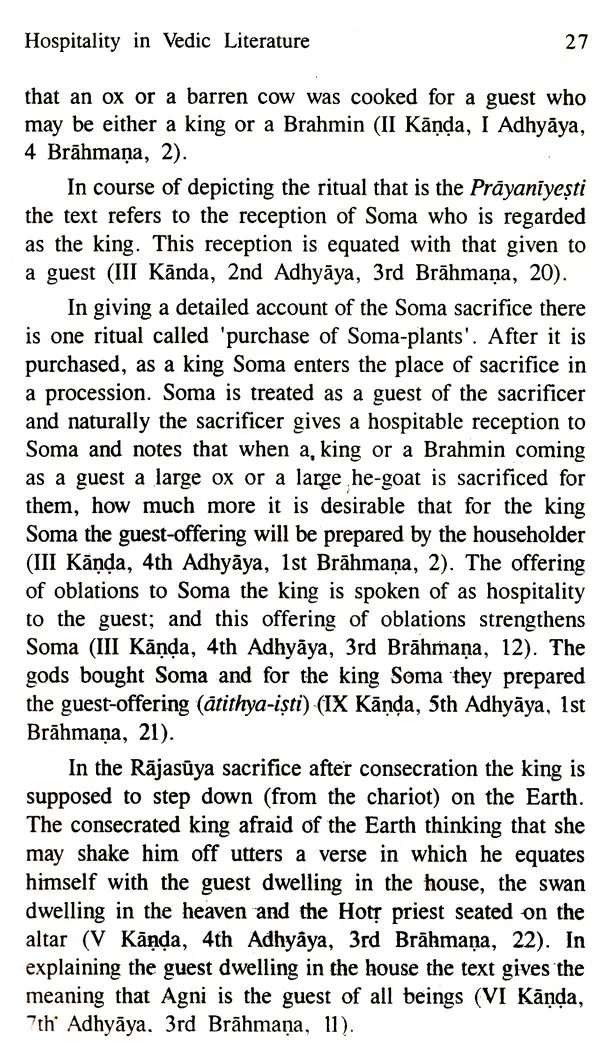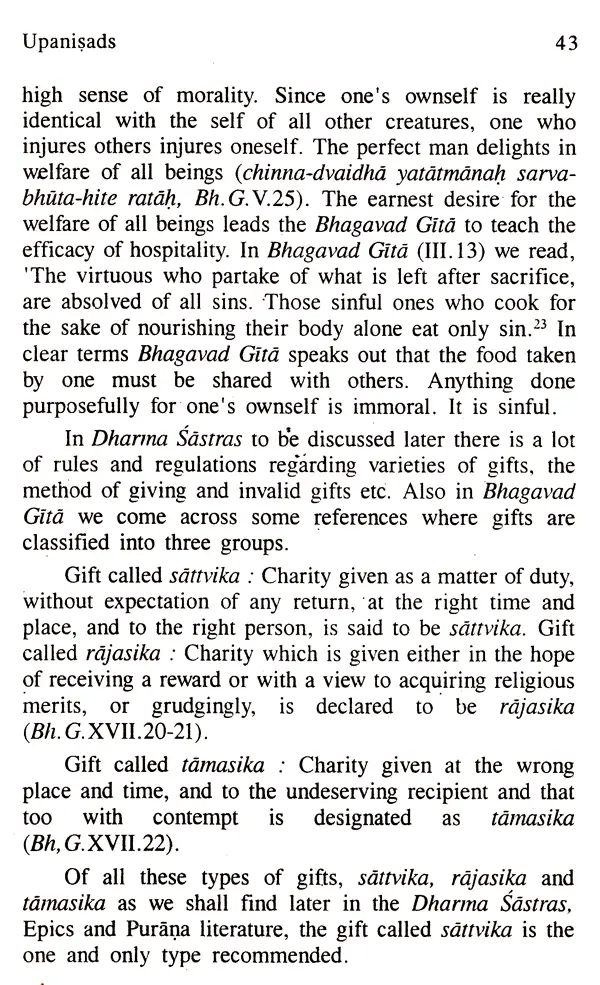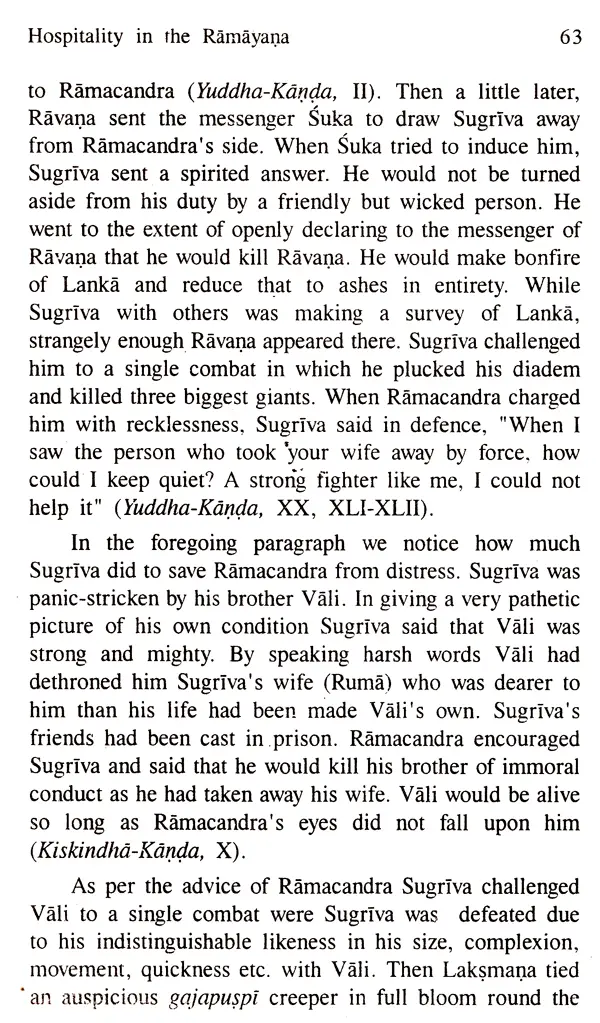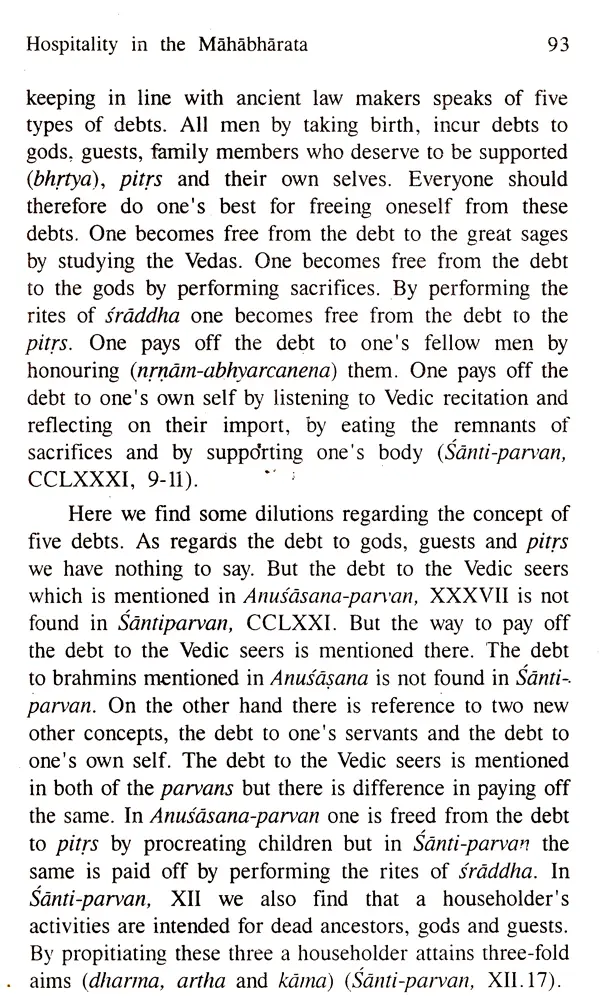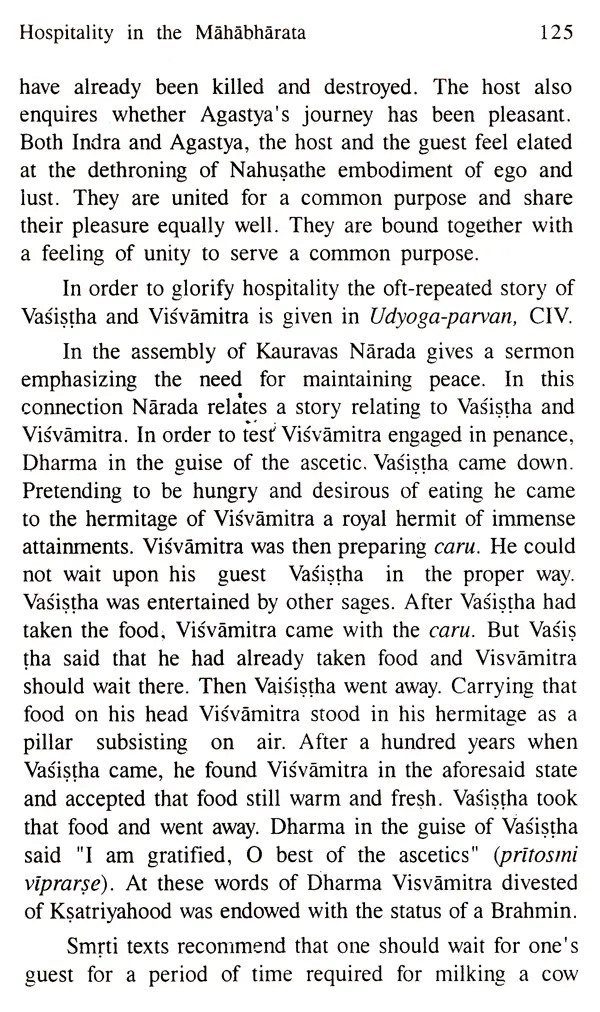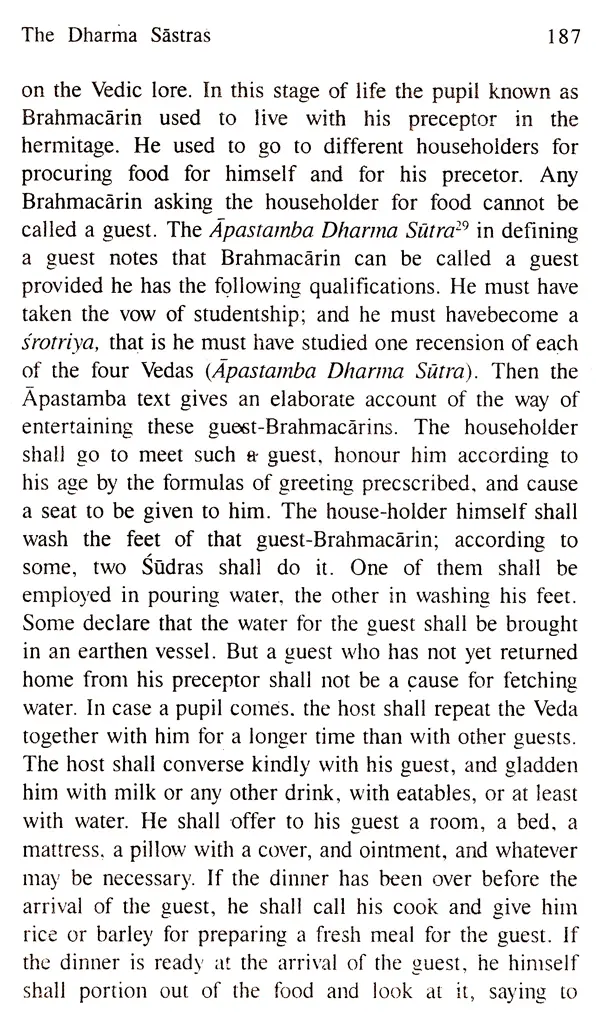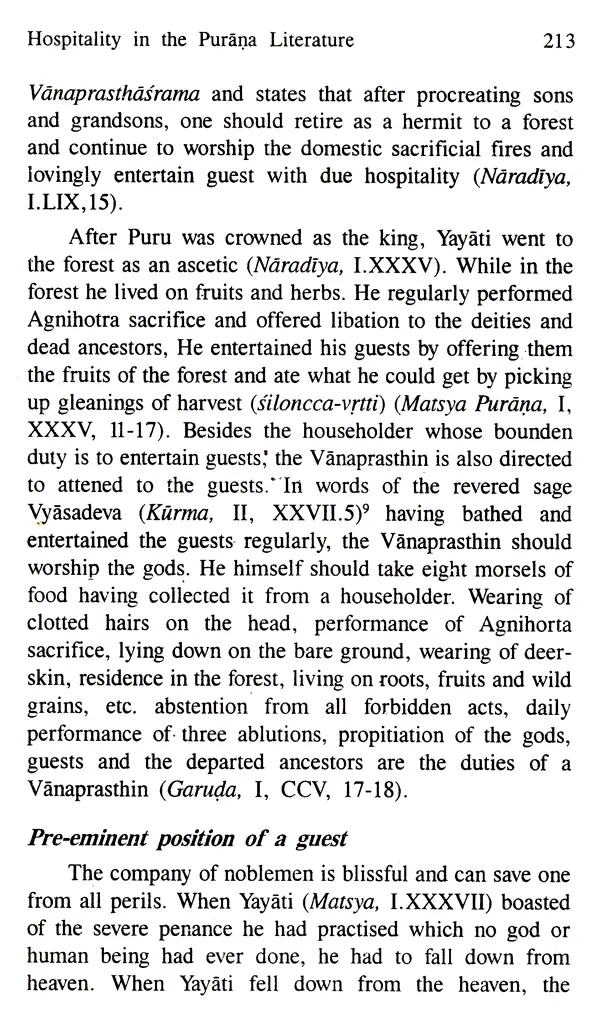
Hospitality in Changing Indian Society: Vedic Age to Puranic Age.
Book Specification
| Item Code: | UAN202 |
| Author: | Dr. Sarat Chandra Parida |
| Publisher: | Bharatiya Vidya Prakshan, Delhi |
| Language: | English |
| Edition: | 2004 |
| ISBN: | 8121701775 |
| Pages: | 262 |
| Cover: | HARDCOVER |
| Other Details | 8.90 X 5.80 inch |
| Weight | 400 gm |
Book Description
Dr. Parida has provided us with a systematic and chronological account of the concept of hospitality beginning with Vedic age. The obvious enthusiasm of the author does not carry him away into wild statements. On the other hand, his approach is that of a serious researcher with an inquisitive mind to delve deep into the subject.
Apart from ritualistic standpoint hospitality is a common feature in Aryan tradition. The famous poet Śriharsa the author of Naisadhacarita assigned to the twelfth century, fondly remembers his patron the ruling Chief of Kanauj who used to honour him every day by offering a seat and two tambulas (tambula-dvayam asanamca labhate yah Kanyakubjesvarat)
Scholarly and thorough Dr. Parida's work throws much light on many dark corners of the subject. No relevant source has been neglected. The thesis presents a very authentic and at the same time a very comprehensive picture of a particular aspect of ancient Indian culture.
In our day-today life we entertain friends and we also get friendly treatment extended by others. This hospitality a noble human virtue is one of the most practical and interesting tenets of our social life. It is a great pleasure to me that I could be awarded Ph.D from Jadavpur University, Calcutta on the thesis of hospitality and the same is going to be published in a book - form.
This work is the result of many years of intensive and scientific research. References of hospitality are deduced from different samples after considerable though and reflection. All available sources pertaining to guest treatment are treated critically. Every problem has been examined from points of view of social customs and personal moral obligations. Not only texts of Hinduism but those of Christianity, Buddhism, Jainism and the like are also referred to. All the religions and cultural heritage of India stamp an admirable attitude of respect and reverence towards guests. Irrespective of caste, creed, power and socio-economic status the guest in held in high esteem. Expect some common mode of treatment entertainment of guest is typical in most of the cases. It is believed that when gods are found pleased they come to the householder in form of a guest and thus the concept of guest gradually reaches the climax of deification.
In my discussion on hospitality in the first chapter I have taken up the Vedic literature including the Upanishads. It is noticed that the germ of this idea exists in the Rgveda the oldest literary product of the Aryans. In the two subsequent chapters I have examined the subject and concrete examples of hospitality have been cited. Of the two Epics the Ramayana and the Mahabharata the former is the earlier production. Therefore, the Ramayana has been taken up first in the second chapter, and the third chapter contain references to the Mahabharata. The Grhya sutras and the Dharma-Sutras afford us a deep insight into the life of ancient Indians. In the fourth chapter "Hospitality in the Dharma Sastras" I have put forth all my findings those are available in these texts. The concluding chapter is written on the basis of materials obtained in the Puranic literature.
**Contents and Sample Pages**
